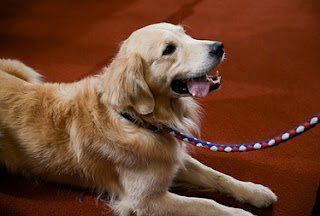How to Care for Senior Dogs - Understanding the Needs of Your Older Dog | Dealing with Older Dog Health Problems
How to Care for Senior Dogs - Understanding the Needs of Your Older Dog | Dealing with Older Dog Health Problems. "Our dogs are such an important part of our lives that it sometimes comes as a bit of a surprise when our frisky and lively friend becomes less active and begins to show his or her age. The point at which your pet could be considered old varies widely with the breed, although all of them will show signs that they are aging (many of which are similar to human aging). dog, dogs, older dog, needs of an older dog, how to care for an older dog, aging dog
Your pet's muzzle might begin to become grey. This greying will extend to nearly the entire face as the dog becomes older. Your dog simply doesn't have the get-up-and-go they used to have, and can be reluctant to leave their cozy bed in the morning. Some dogs develop hearing and vision problems as they age. Some even have a form of dementia called canine cognitive dysfunction syndrome (CDS), which is similar to Alzheimer's disease in humans with many of the same symptoms.
Cognitive dysfunction syndrome affects the behavior of the dog and results in diminished mental capacity. As with human dementia, it sneaks up little by little as the dog ages, and its early symptoms are often overlooked. One of the first ways that CDS shows itself is that the dog becomes confused in its own yard - it can literally forget how to get back inside.
Dogs with CDS will often begin to urinate and/or defecate in the home. They are not really responsible for this and no punishment should be attached to it, just try to take your pet out more often to use the yard.
Heightened anxiety is another sign of CDS, with the dog becoming nervous and agitated for no reason. Dogs with this condition often have insomnia, or switch their sleeping and waking cycles.
Very often an affectionate dog will become withdrawn and fail to seek out the attention it formerly craved. Sometimes the dog will not even seem to recognize people or other pets.
Our responsibility to our dogs extends throughout their lifetimes and when the time comes that our companions are becoming old, we should take steps to make sure that they stay as healthy and fit as possible. A trip to the veterinarian twice a year to detect any abnormalities is a must, but there are things you can do at home too.
You should provide your dog with the highest quality food possible, especially one designed for senior dogs. Good food will keep the body functioning much better than cheap varieties. You should also take care to keep your dog from getting fat as this will put more strain on the joints and make the dog more likely to develop diabetes.
You need to make sure your older dog gets exercise every day. Scale the level of exercise to the dog's condition of course, but even a short walk or play session can help keep joints from deteriorating. Exercise strengthens the heart and helps keep the body functioning better.
If your dog has become arthritic, use ramps or stairs to allow him to get onto furniture more easily. No dog should sleep on the bare floor, especially an older one, so make sure the dog's bed is comfortable and provide blankets for use on cold nights.
Give your friend plenty of attention and affection which will help to keep him more active mentally. New toys and a regular play session daily can help to minimize the onset of CDS.
Supplements that provide extra vitamins and minerals, and those designed to help build joint strength should be added to the daily diet.
Your dog has probably provided unconditional love and companionship over the years, so taking the extra time and effort to make your older dog comfortable is important not only for him or her, but also for you."

Belum ada Komentar untuk "How to Care for Senior Dogs - Understanding the Needs of Your Older Dog | Dealing with Older Dog Health Problems"
Posting Komentar